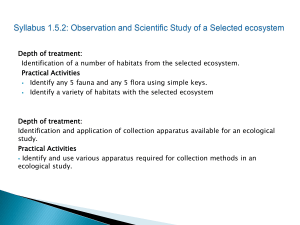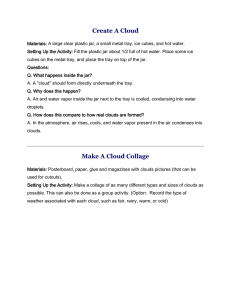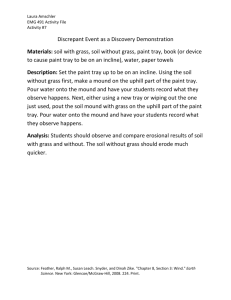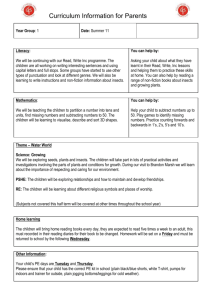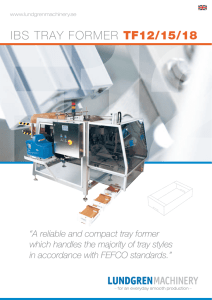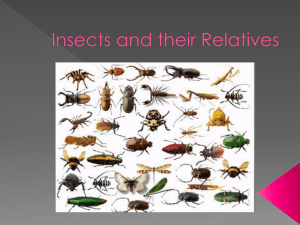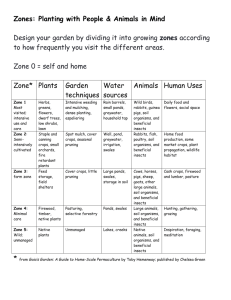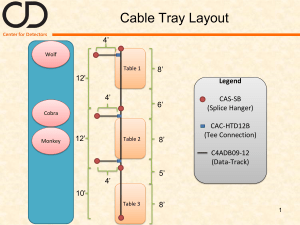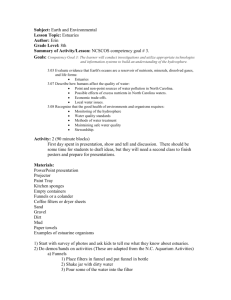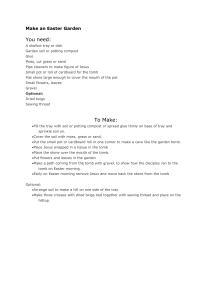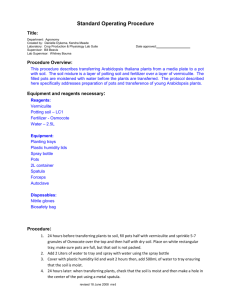Ecology Equipment Ppt
advertisement
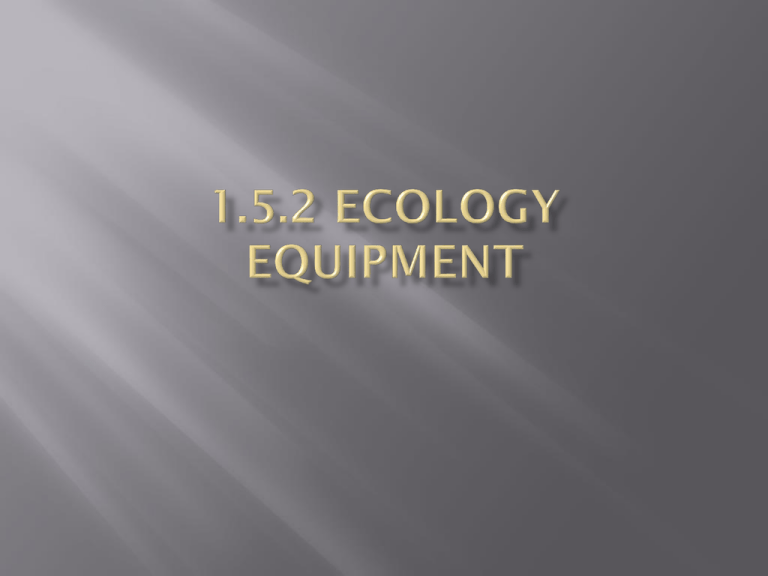
2 • Used to extract nematodes from a soil sample Light and heat cause the organisms to move out of the muslin bag and into the bottom of the funnel where they are collected for examination under a microscope and identification. 3 Used to extract animals from soil by heating the soil on one side The animals are driven out of the soil by heat from a lamp and fall through a wire gauze 4 a plant grab. It consists of a sturdy pole with barbs at one end When the grab is plunged into aquatic vegetation the plants become entangled in the barbs and can be pulled onto dry land. 5 Used for catching flying insects. The net part should be sufficiently long so that the mouth frame seals off the end of the net which contains the catch when the net is laid flat. 6 Used to collect small fish from pools and streams 7 Used to collect microscopic plants and animals from pools and streams 8 Used to collect insects from tall grass 9 Used for picking up very small animals. Suck through mouthpiece (end of which is covered with muslin) and the animal is taken into jar through the hose 10 Organisms that live in leaf litter can be extracted by using a sieve with a mesh size of about 5 mm. Use the sieve over a beating tray or a large sheet of paper. 11 A piece of wood or stone which is left on the ground. After a suitable interval, animals such as slugs, woodlice, centipedes and millipedes will be found underneath. 12 Used to collect small mammals e.g. mice, voles, etc. 13 http://www.inhs.uiuc.edu/cwe/ww wtest/collect/HTML/d18.html Jam jar buried in ground and covered with raised flat stone. Used to collect ground surface animals insects, nocturnal and diurnal e.g. spiders, centipedes, woodlice, beetles, etc. 14 This is a white tray, cotton sheet or large sheet of white paper. It is placed under a bush or tree branch. The tree branch is shaken suddenly and vigorously. Insects and other invertebrates fall onto the tray. 15 This is used in freshwater. It consists of a shallow wooden frame which has a metal gauze or perforated zinc sheet bottom. The tray is placed on the bottom of a pond or stream and is covered with gravel or mud and is left in place for a month or more. It is then carefully removed and examined and the organisms which have settled on it are recorded. 16 An electronic device often with a digital display Used for accurate measurement of different environmental abiotic factors e.g. temperature, pH, light intensity, etc. 17 Used to measure the light intensity 18 A frame that forms a known area usually 0.5m X 0.5m = 0.25m2 Usually square shaped Can be used to measure: Frequency and % Cover 19 20 21 22 23 24 25
